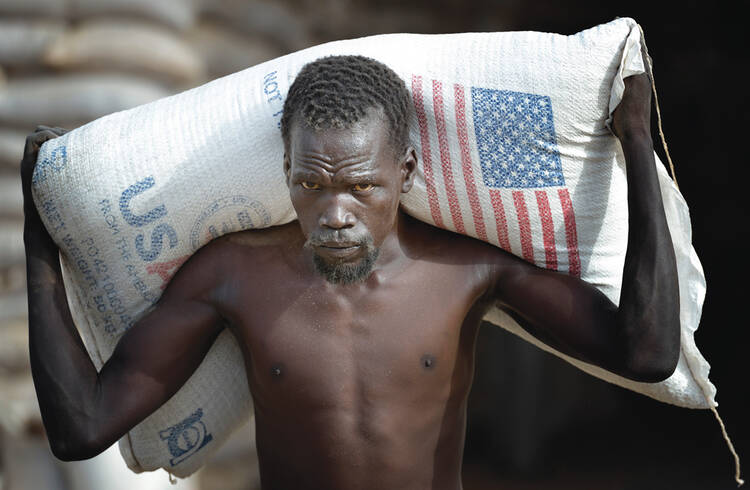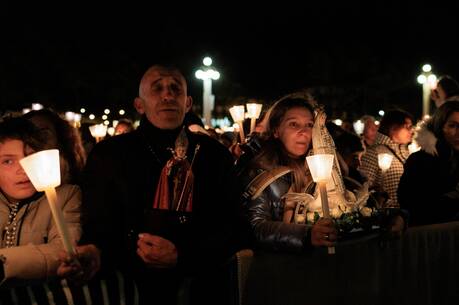The House finally passed a five-year farm bill on Jan. 29, more than a year after the previous agriculture program expired and two days before a stopgap extension was itself set to expire. While Catholic groups and other rural advocates had been urging passage of a farm bill, their enthusiasm for the version that finally made it through the House of Representatives was diminished by the $8 billion cut in food stamps it mandated and the removal of agricultural reform measures that had been negotiated by a joint House-Senate conference committee.
The reduction in the food stamp program will result in $90 less per month for 850,000 Americans. The Senate is scheduled to consider the bill sometime in early February; passage is expected.
Archbishop Thomas G. Wenski of Miami, chairman of the U.S. bishops’ Committee on Domestic Justice and Human Development, sought out elements of the five-year package to endorse in a statement released on Jan. 29. “While we are disappointed that the final compromise continues to call disproportionately for sacrifices from hungry and poor people in this country and around the world, especially when large industrial agricultural operations continue to receive unnecessary subsidies,” he said, “we are glad to see support will continue for domestic and international nutrition and development aid, rural development and conservation.” In addition to nutrition programs—the Supplemental Nutrition Assistance Program, known as SNAP, and the Emergency Food Assistance Program—the farm bill sets policy across a range of programs related to U.S. agriculture, including crop insurance, conservation, subsidies to farmers and overseas food aid.
“We are disappointed to see that necessary reforms to farm commodity programs and payment levels have been struck down in the final bill,” said James Ennis, executive director of Catholic Rural Life. In a post-mortem evaluation of the House vote on Catholic Rural Life’s Web site, Ennis commented: “Reading the press releases by the House and Senate committee chairs, you would think a host of ‘major reforms’ have taken place. But the structure of agriculture is still very much unchanged, and the 2014 agricultural act doesn’t seem substantively different from past farm bills. Well-off farm operations (and their investors) will continue to receive generous subsidies.”
In an e-mail to its members before the vote, Catholic Rural Life had nevertheless urged a “yes vote” on the House bill, despite its “failings in reforms.” The organization said passage would at least “ensure some stability in farm, food and conservation programs for the next several years.” Ennis added: Catholic Rural Life “will not stop in working for real reform in farm and food policies. Much can be done at the local, state and regional levels. Much can change on the farm by the food choices we make at the store.”
The Rev. Larry Snyder, president of Catholic Charities USA, also weighed in on the House measure. “We continue to be concerned that those who are most vulnerable will bear the greatest burden when cuts are being considered in any programs that address poverty in this country,” he said. “However, we realize that tough choices may have to be made and encourage our country’s decision-makers on this 50th anniversary of the war on poverty to commit to ensuring that millions of our brothers and sisters are not being left out or left behind.”








